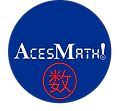TOK 2024 - commentaries on questions
- loocheewee84
- Mar 21, 2024
- 4 min read
Updated: Apr 2, 2024
Below are comments and advice on 2024 TOK essay questions from our tutor Ashleigh Hearn (Class of Hwa Chong International 2021)!
About Ashleigh:
She graduated with a score of 43 and scored straight As for all her English assignments and exams throughout her IB journey (needless to say, she topped the cohort for English Lang & Lit and yes she is also our English tutor).
She has tutoring, mentoring experience in advising her peers during her years in HCIS. Her greatest strength lies in the fact that she does not just give you her (close to perfect) answer but seek to build a bridge between your current work and the best state you can be in.
2024 TOK questions
Does our responsibility to acquire knowledge vary according to the area of knowledge? Discuss with reference to history and one other area of knowledge.
History is a subjective interpretation of past events, influenced by agendas and bias. Historians need to be objective and critical and have a responsibility to ensure that historical knowledge is used ethically and responsibly, avoiding distortion or manipulation for political or ideological purposes.
Natural Sciences is characterized by a commitment to empirical evidence, experimentation, and peer review. The scientific method serves as a rigorous framework for acquiring knowledge about the natural world. Scientists have a responsibility to adhere to ethical guidelines in their research, ensuring the integrity and validity of their findings as well as communicating scientific findings accurately and transparently to the public.
In the production of knowledge, is ingenuity always needed but never enough? Discuss with reference to mathematics and one other area of knowledge.
Mathematics relies heavily on ingenuity to advance knowledge. Mathematicians often need to think creatively to develop new theorems therefore, ingenuity is essential in solving complex problems and discovering patterns. However, logic and precision are equally important. Anything found needs to be peer reviewed to advance knowledge.
In the Arts, ingenuity is needed as artists are imaginative and emotional when expressing their experiences through their work. However, a degree of technical skill and cultural context helps in the production of art.
How might it benefit an area of knowledge to sever ties with its past? Discuss with reference to two areas of knowledge.
Mathematics: Positive Impact: Severing ties with its past in mathematics can stimulate innovation and the discovery of new mathematical concepts and techniques. Negative Impact: However, severing ties with the past in mathematics without understanding foundational concepts and historical developments can hinder mathematical progress and coherence.
To what extent do you agree that there is no significant difference between hypothesis and speculation? Discuss with reference to the human sciences and one other area of knowledge.
Human sciences: hypothesis typically refers to a proposed explanation for a phenomenon based on preliminary observations, data, or theories. In contrast, speculation in the human sciences often refers to conjecture or theorizing without substantial empirical evidence or systematic analysis. Speculation may involve creative thinking or intuition but lacks the rigorous testing and validation characteristic of hypotheses.
Natural sciences: a hypothesis plays a similar role to that in the human sciences. It is a tentative explanation or prediction that is subject to empirical testing and falsifiability. This hypothesis can be tested through experiments or observational studies to evaluate its validity. Speculation may refer to conjecture or imaginative thinking that precedes the formulation of testable hypotheses. However, unlike in the human sciences, speculation in the natural sciences often involves informed reasoning based on existing theories, observations, or data.
In the production of knowledge, are we too quick to dismiss anomalies? Discuss with reference to two areas of knowledge.
Natural Sciences: anomalies are observations or experimental results that do not align with existing theories or expectations. Scientists may initially dismiss anomalies as errors or outliers, especially if they contradict well-established scientific principles. However, this can affect scientific progress by ignoring potentially valuable insights or novel phenomena. Anomalies may signal the need for revising existing theories, exploring new hypotheses, or developing more sophisticated experimental techniques.
History: In historical research, anomalies may manifest as conflicting accounts, artifacts, or events that challenge conventional narratives or interpretations of the past. Historians may overlook anomalies that do not fit prevailing historiographical frameworks or ideas. Dismissing anomalies in history can perpetuate biased or distorted views of the past, obscuring diverse perspectives and experiences. Anomalies may represent untapped sources of knowledge that shed light on overlooked historical dynamics, cultural interactions, or social phenomena.
In the pursuit of knowledge, what is gained by the artist adopting the lens of the scientist adopting the lens of the artist? Discuss with reference to the arts and the natural sciences.
Arts : When artists adopt the lens they gain access to scientific methodologies, data analysis techniques, and empirical approaches. This can enhance the depth and accuracy of their artistic representations., as well as explore new mediums, technologies and creative processes.
Natural Sciences: they can utilize creativity and imagination which can aid in designing theoretical frameworks and innovative approaches. They may also be encouraged to explore broader implications and societal contexts in research.
.png)